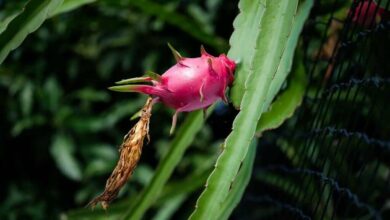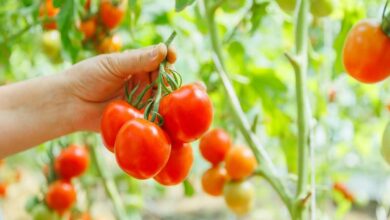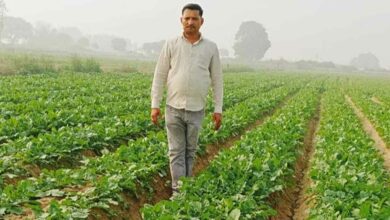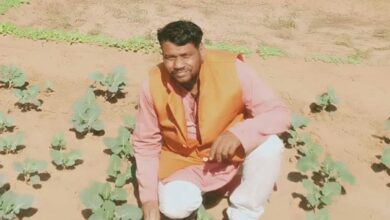Success Story: This farmer from Assam earns lakhs of rupees annually from dragon fruit, flower cultivation and animal husbandry
Success Story: Since her early years, Birkha Bahadur Gurung, a native of Samtenling village in Gelephu town, Bhutan, has had a strong interest in farming. In 2015, he and his wife entered the floriculture business when he was a school teacher. When Birkha discovered that his teaching pay was not enough to support the family, what had begun as a simple pastime quickly became a necessity. He turned their little floriculture into a full-fledged enterprise because he was determined to close the gap. While Birkha juggled farming and teaching, his wife, who had previously been a housewife, took charge of running their nursery.
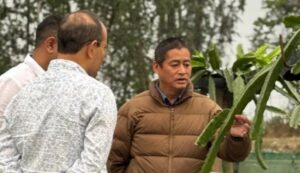
They moved into bonsai growing as their floriculture company grew, a move that unexpectedly garnered them fame. The King of Bhutan saw their nursery and paid them a personal visit, praising their work and encouraging them. This royal recognition encouraged Birkha and his wife to expand their agricultural business. The introduction of COVID-19, however, presented serious difficulties, negatively affecting their sales and compelling them to go into alternative agricultural endeavors.
A Fresh Insight From Assam
Birkha looked to YouTube for fresh agricultural inspiration during the outbreak. He first discovered dragon fruit cultivation as a result of his internet searches. There were only a few types of dragon fruit accessible in Bhutan. When he discovered Akbar Bhai, an Assamese farmer who was successfully growing dragon fruit, his curiosity grew. Birkha chose to visit Akbar Bhai’s farm because she was intrigued by his work. His life changed dramatically as a result of the session.
In addition to inspiring Birkha, Akbar Bhai also provided him invaluable counsel and assistance. Birkha returned to Bhutan and started his dragon fruit garden with 800 seedlings. He saw strong development on his farm, and the early results were positive. Encouraged by the success, he increased the size of his farm to one acre and plans to do it again shortly.
Agricultural Diversification for Sustainable Growth
In addition to dragon fruit, Birkha and his spouse have created a well-rounded farm. Siam Red, Red Velvet, Pink Rose, Moroccan Red, Vietnamese Red, Jumbo Red, Israeli Yellow, and Georges White are among their seven varieties of dragon fruit trees.
In addition to dragon fruit, they also grow flowers, including peace lily, bougainvillea, snake plant, and seasonal blooming. Their farm also has fruit trees that produce macadamia nuts, lychee, and mango.
Another essential component of their business is the raising of livestock. They have 28 goats and eight Jersey cows, which they utilize for both dung and milk. The remainder of the milk is sold on the market, even if part is used at home. By fertilizing the farm with cow and goat dung, they reduce their need for artificial fertilizers and increase soil fertility. In order to help their farm run independently, they also rear four pigs, part of whose flesh is prepared for sale and the remainder is consumed by the family.
Obstacles and Goals for the Future
Market awareness is one of the biggest obstacles to dragon fruit farming in Bhutan. Since dragon fruit is a relatively new crop in the country, local demand is low. Birkha handed up his first crop to friends, relatives, and religious institutions for free in order to spread the word. By doing this, he aims to increase awareness and eventually open up a market for his produce.
In the next years, he hopes to expand his dragon fruit production while promoting sustainable farming practices. He intends to improve soil fertility and save money by employing organic manure from his animals, which will make it sustainable over time. He thinks his income will improve significantly since dragon fruit output is expected to increase.
An illustration of how information sharing among farmers might open up new opportunities is the case of Birkha Bahadur Gurung. An Assamese farmer inspired him to switch from floriculture to dragon fruit growing, demonstrating how agricultural methods may be transformed by taking inspiration from others.
The transformation of schoolteacher Birkha Bahadur Gurung into a prosperous and creative farmer serves as a testament to the strength of adaptability, learning, and tenacity. He has developed a sustainable agricultural strategy that not only increases his family’s income but also encourages environmentally friendly practices by diversifying his property with fruit trees, dragon fruit, floriculture, and animals.
Birkha, who makes between Rs 5 and Rs 6 lakh a year, is committed to growing his dragon fruit business and promoting sustainable farming in Bhutan. For farmers looking to adopt organic practices, diversify their crop production, and succeed in the long run, his tale is a source of motivation.


